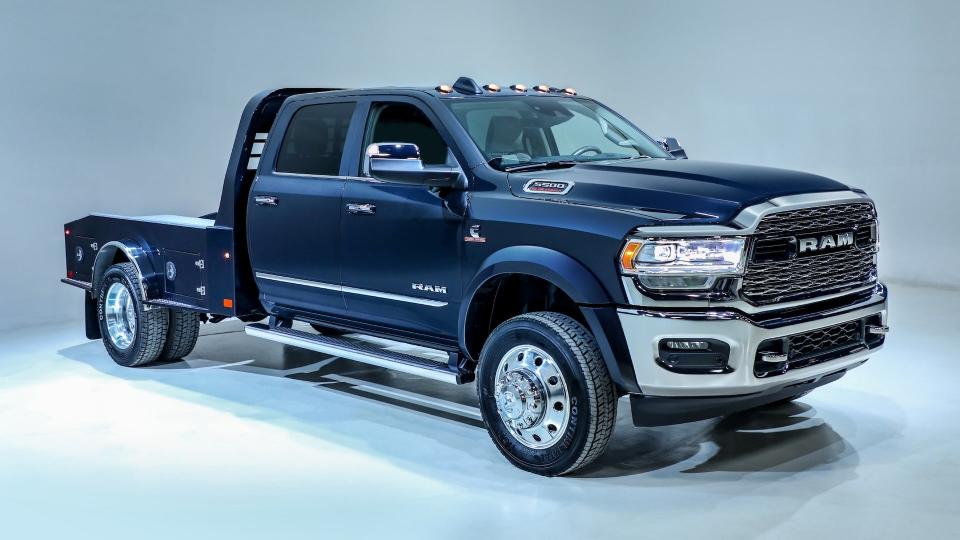Ram HD With Hydrogen Fuel Cell Coming to the US: Report

Stellantis has spent the last decade wringing every cent it could out of thirsty Jeeps, V8 Rams, and its dual Dodge muscle cars. That came at the expense of its electrification efforts, which had the auto conglomerate buying up carbon credits galore until recently. Now, Stellantis doesn't want to just play catch-up, but leapfrog the competition with its raft of PHEVs and—of all things—a reported hydrogen Ram HD pickup.
Citing German outlet Welt am Sonntag, Wards Auto writes that Stellantis has commenced manufacture of a hydrogen fuel-cell Ram 5500 in Poland, where the truck is said to be in low-volume production. The truck will also reportedly be built in Mexico for sale in the United States, where the 5500 is sold as a chassis cab. Ram reportedly aspires to sell 100,000 of the hydrogen trucks a year, by which point it intends for 40 percent of its commercial vehicle lineup to be emissions-free (at least in Europe).

Ram's timing for this H2 commitment is interesting, to say the least, not to mention completely on-brand for electrification laggard Stellantis. Hydrogen has been pushed as a direct stand-in for fossil fuels for decades now, but has yet to catch on. There are many reasons for this, but chief among them is that hydrogen isn't yet an economical form of energy storage. Splitting the element from water molecules via hydrogen electrolysis (which could become the cheapest way to refine H2) is electricity-intensive, and self-defeating if fossil fuels are the primary energy source. Effectively, hydrogen depends on a renewable energy surplus to be worth its conversion inefficiencies.
These economics have slowed the uptake of hydrogen vehicles, even under governance that strongly supports them. H2-powered cars, for example, have gone down so poorly in California that Shell recently shuttered its consumer-facing hydrogen filling program, orphaning owners of the Honda Clarity, Hyundai Nexo, Toyota Mirai, and other FCEVs.
That said, H2's case remains stronger for industrial and fleet vehicles, which is how the Ram 5500 is predominantly used. Operating out of a central hub or in a dedicated service network (like in long-haul trucking) makes novel fuels like hydrogen more viable, especially if it's synthesized onsite. It would make sense for Ram to cater to this market specifically, rather than try to sell a fuel-cell pickup to a seemingly hopeless consumer FCEV market.
Got a tip or question for the author? You can reach them here: james@thedrive.com

 Yahoo Autos
Yahoo Autos 